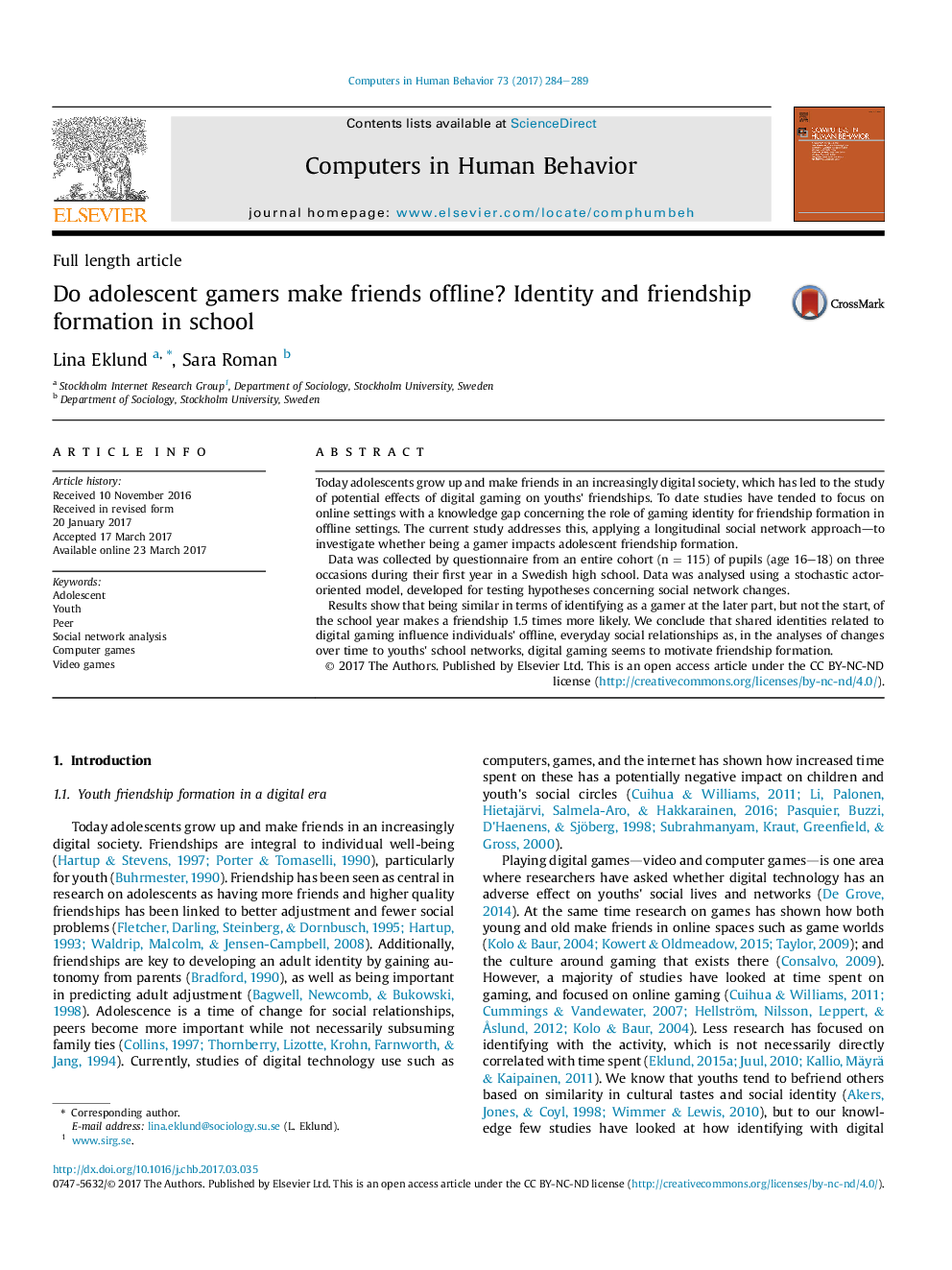| Article ID | Journal | Published Year | Pages | File Type |
|---|---|---|---|---|
| 4937180 | Computers in Human Behavior | 2017 | 6 Pages |
â¢Social network data from a full cohort of 16 year olds starting a new school.â¢Social network analysis exploring changes to youths' friendships over first year.â¢Analyses suggest digital gaming act as motivator for friendship formation in school.
Today adolescents grow up and make friends in an increasingly digital society, which has led to the study of potential effects of digital gaming on youths' friendships. To date studies have tended to focus on online settings with a knowledge gap concerning the role of gaming identity for friendship formation in offline settings. The current study addresses this, applying a longitudinal social network approach-to investigate whether being a gamer impacts adolescent friendship formation.Data was collected by questionnaire from an entire cohort (n = 115) of pupils (age 16-18) on three occasions during their first year in a Swedish high school. Data was analysed using a stochastic actor-oriented model, developed for testing hypotheses concerning social network changes.Results show that being similar in terms of identifying as a gamer at the later part, but not the start, of the school year makes a friendship 1.5 times more likely. We conclude that shared identities related to digital gaming influence individuals' offline, everyday social relationships as, in the analyses of changes over time to youths' school networks, digital gaming seems to motivate friendship formation.
